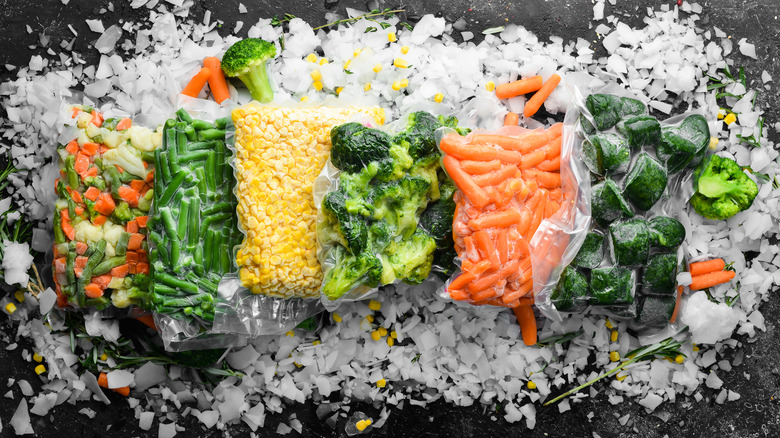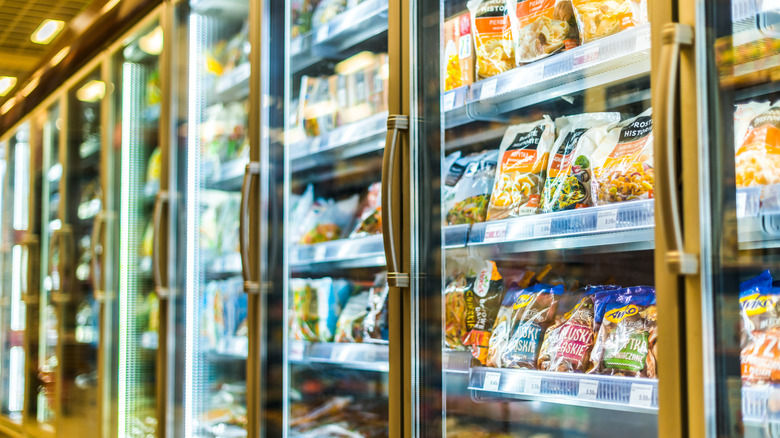Are Organic Frozen Foods Actually Good For You?
Marketing experts within "big food" have done an exceptional job at positioning the term organic such that many automatically consider it to be healthy. And while we would love it if organic Oreos were considered health foods, unfortunately, that's just not the case.
When you walk through the frozen foods aisle at the grocery store, you may have noticed many packages don the title USDA Organic. But what does that really mean?
According to the U.S Department of Agriculture (USDA), produce can be considered certified organic if it has been grown in soil that has not been treated with chemical fertilizers or pesticides for at least three years. When looking at processed foods with multiple ingredients, they can boast the title of USDA organic only if they use organic ingredients and forgo artificial preservatives, colors, or flavors (via Harvard T.H. Chan School of Public Health).
So organic is definitely a step in the healthy direction. But are organic frozen foods actually good for you?
What to look for in organic frozen food
The question of whether frozen organic food is healthy or not doesn't have a one-size-fits-all answer. For example, because vegetables are usually frozen immediately after being harvested, they tend to retain the majority of their nutrients. A 2015 study published in Food Research International suggests that blanched and frozen vegetables can last up to two months without their phytochemical composition being compromised.
Interestingly, a 2014 study published in the International Journal of Food Properties found that frozen, uncooked kale had higher antioxidant levels than fresh kale, suggesting that the freezing process might positively affect the nutritional content. And because certified organic means no chemical preservatives have been added, plain, sauce-free, frozen vegetables are a healthy option with a much longer shelf life than fresh vegetables.
Multi-ingredient frozen foods, like ready-made dinners, tend to be less healthy, however. To skip the artificial preservatives, prepared frozen foods often contain high amounts of sodium. Amy Gorin, a registered dietician nutritionist, wrote for NBC News that you want to look for frozen meals under 500 calories, with less than 600 milligrams of sodium. She said that if the calorie content is under 350, you may want to add your own protein, healthy fats, or starchy vegetables to make it a complete meal.
Other considerations about frozen, organic foods
There are many healthy, nutritionist-approved, organic frozen meals on the market to choose from, according to NBC News. And while sporting an organic label doesn't necessarily make a product healthy, that doesn't mean there aren't health benefits. While organic pizza and mac and cheese likely won't ever be considered health foods, an organic certification gives you the peace of mind that you're reducing your exposure to additional chemicals like pesticides.
Buying organic frozen foods also supports an important change in the agricultural industry and the health of our environment. Organic farms have been found to reduce pollution, conserve water, preserve the health of the soil, and require less energy (per HelpGuide).
So why not make the switch to organic frozen foods? As long as you're aware of the ingredients and sodium content, you'll likely be doing your body and the environment a favor in the long run.



